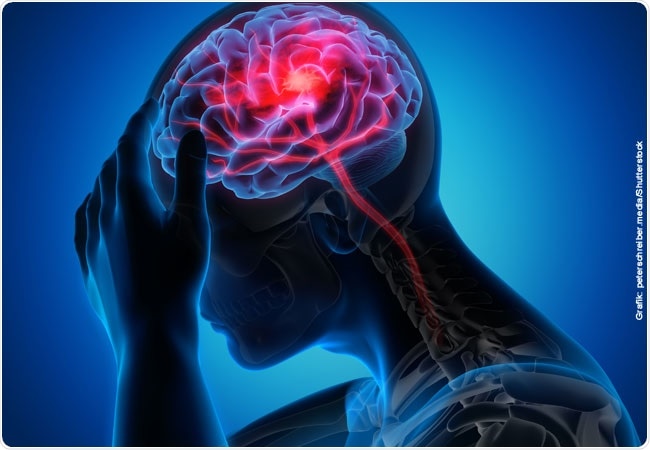An ischemic stroke occurs when the homeostasis of the body and brain is highly disrupted. The immune system, among other things, activates an inflammatory response that can either overshoot or change into an immune deficiency.

After a stroke, the immune system triggers an inflammatory reaction. Image Credit: Goethe University Frankfurt.
Now, for the first time, an international research team—including investigators from Goethe University Frankfurt, Germany—has demonstrated that fragments of tRNA play a crucial function in this immune reaction.
tRNAs transport amino acids during the synthesis of proteins (“transfer RNA”), and for a long time, tRNAs fragments were believed to be a cellular waste. The study is aiming to identify novel target structures for therapeutics.
Sebastian Lobentanzer from Goethe University, Frankfurt, has been examining small RNA dynamics in several contexts using bioinformatic techniques.
In the recent past, small RNAs have become increasingly fascinating for scientists, mainly due to their wide regulatory mechanisms. To investigate these roles in stroke, Lobentanzer collaborated with Katarzyna Winek from Hebrew University in Jerusalem, to assess tRNA and microRNAs fragments in blood samples collected from ischemic stroke patients in Charité, Berlin.
tRNA fragments, which until now were only thought to be debris of the amino acid-transporting tRNAs, have recently been shown to possess biological functions; naturally, we were very interested in that.”
Sebastian Lobentanzer, Pharmacologist, Institute for Pharmacology and Clinical Pharmacy, Goethe University Frankfurt
The study was started and headed by Hermona Soreq from The Hebrew University, Jerusalem, Israel, and Andreas Meisel from Charité, Berlin, who mutually analyzed the contributions of small RNA regulators of cholinergic signaling found in blood cells of stroke patients. The project was financially supported by the Einstein Foundation.
Katarzyna Winek from The Edmond and Lily Safra Center of Brain Science from The Hebrew University teamed up with Sebastian Lobentanzer from the Institute for Pharmacology and Clinical Pharmacy (AK Jochen Klein) at Goethe University Frankfurt in Germany.
For the first time, this collaborative effort successfully demonstrated that monocytic tRNA fragments are involved in the poststroke immune response.
Simply put, there may be a ‚changing of the guards, in which tRNA fragments replace microRNAs in monocytes. Bioinformatic network analyses show that these two small RNA species have vastly different functional roles in the immune response, and thus may work in synergy in the regulation of homeostasis.”
Sebastian Lobentanzer, Pharmacologist, Institute for Pharmacology and Clinical Pharmacy, Goethe University Frankfurt
In the long run, the team wants to identify new therapeutics to alter these processes. Undoubtedly, if the immune state of each patient following a stroke could be individually established, several complications could be prevented.
Source:
Journal reference:
Winek, K., et al. (2020) Transfer RNA fragments replace microRNA regulators of the cholinergic poststroke immune blockade. Proceedings of the National Academy of Sciences. doi.org/10.1073/pnas.2013542117.